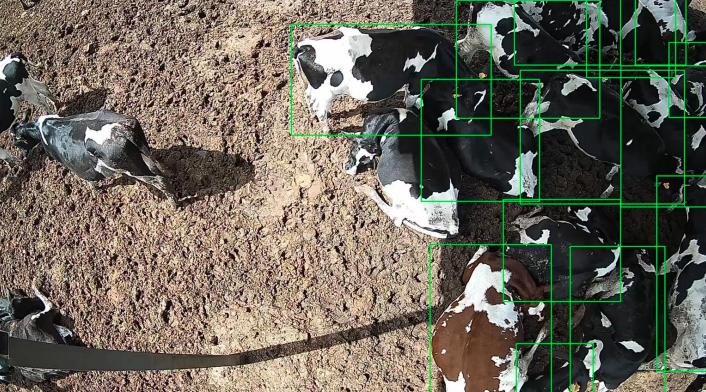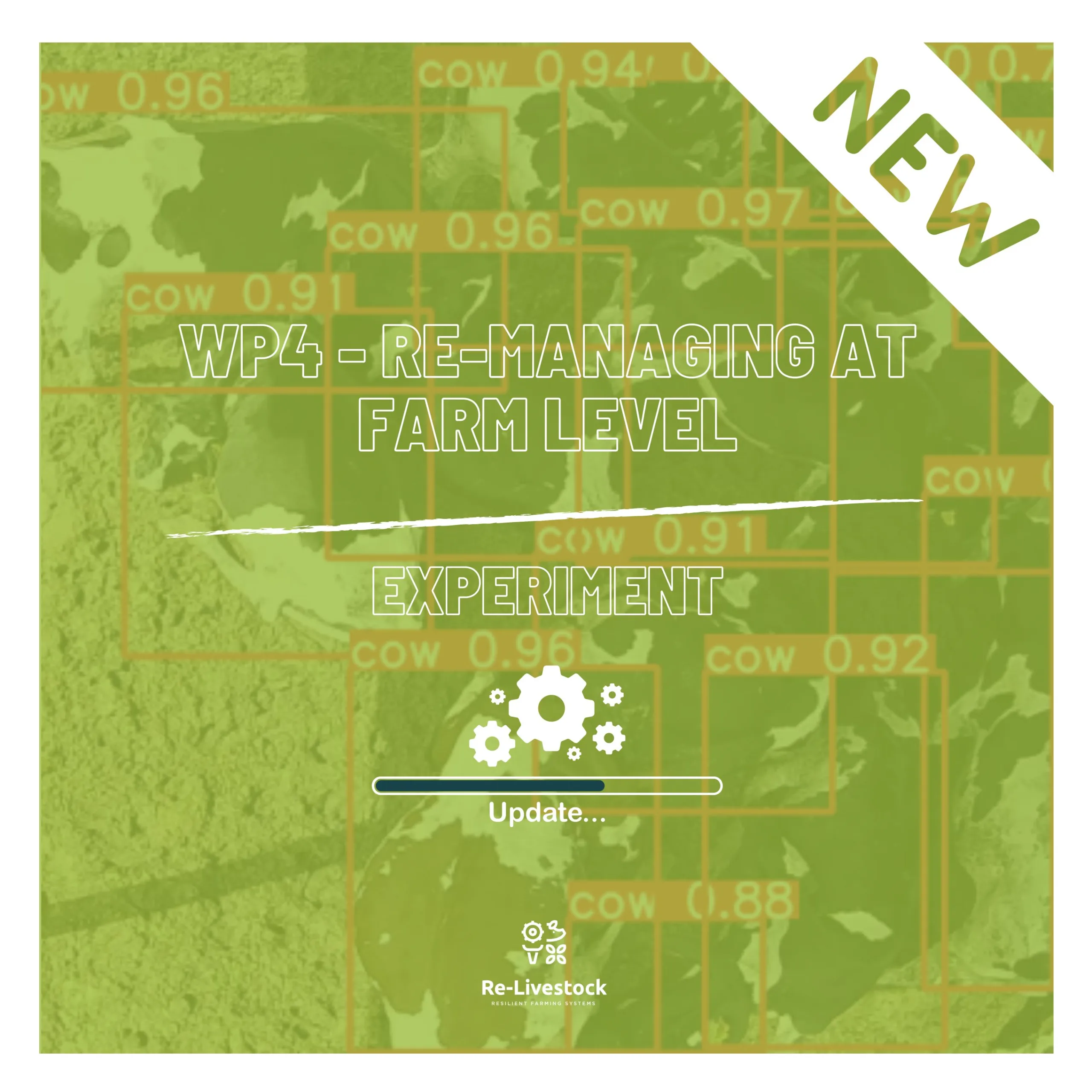Re-managing farm level options for heat stress reduction through a precision livestock farming framework
To date, there is a growing concern regarding the impacts of higher temperatures on livestock systems. In this context, climate change-induced heat stress not only jeopardizes the health of animals but could also endanger the overall productivity of livestock farms, particularly in regions like the Mediterranean. In response to these challenges, the Work Package (WP) 4 carried out trials to equip farmers with appropriate frameworks to facilitate decisions when implementing and monitoring practices and strategies to promote animal welfare.
With this aim, the Universitat Politècnica de València has undertaken initiatives to discern the factors influencing the utilization of shading by dairy heifers within rearing systems by applying a pioneering evaluation and analysis framework. This innovative framework integrates precision livestock farming technologies, such as computer vision (convolutional neural networks), with advanced artificial intelligence algorithms, particularly neural networks. This approach facilitates the analysis of complex patterns based on multiple variables to predict the animal behavior, particularly the usage of shade, with indicators of heat stress beyond traditional statistical approaches.

In contrast to conventional methodologies, which typically concentrate on assessing heat stress at discrete time points, the initial findings of this trial conducted during the summer of 2023, highlighted the critical role of temperature and humidity index (THI) dynamics during nocturnal periods in influencing the resilience of animals to heat stress. Even in scenarios where daytime THI values are elevated (>72), a decline beneath this critical threshold during the night correlates with lower use of the shadow and, thus, lower heat stress.
In conclusion, while further research is needed to refine and validate these preliminary findings, the integration of precision animal husbandry technologies and artificial intelligence represents a promising approach to address the challenges posed by climate change in the livestock sector. Through cutting-edge tools and methodologies, the Re-Livestock Project provides a deeper understanding of the complex interactions between environmental factors and animal behaviour, leading to more effective strategies for mitigating heat stress and promoting animal welfare. Moreover, the findings of this study hold significant implications for farm management practices. By recognizing the importance of THI dynamics in influencing animal behaviour, farmers can implement tailored and context-specific measures to mitigate the effects of heat stress on their livestock. Furthermore, the interdisciplinarity of this work combining data science and animal science expertise provides an added value to the research and the Re-Livestock consortium, creating a collaborative environment between different scientific branches.
